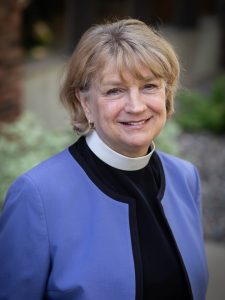 By Bishop Ann Svennungsen
By Bishop Ann Svennungsen
Founded in 1988, we will soon celebrate the 35th anniversary of the ELCA, formed by the merger of three predecessor bodies – the AELC, the ALC, and the LCA. However, even before the anniversary celebrations begin – and you are planning one, right? – the ELCA will launch a process to “reconsider the purpose and structure of our church.”
“The ALC existed for only 27 years; the LCA for 25 years.”
The ELCA was formed after the Commission for a New Lutheran Church worked for five years to develop the foundational documents for the ELCA. The Commission for a Renewed Lutheran Church, established at the August 2022 churchwide assembly, will bring its recommendations in 2025.
We may wonder if it’s too soon for such reconsideration of our foundational documents. And yet, the ALC existed for only 27 years; the LCA for 25 years. Even more, Lutherans are part of a reformation movement often described as semper reformanda – the church reformed, always being reformed.
SO, HOW DOES THE ELCA need to change? In what ways does our church need to be reformed? The pace of change in society continues to accelerate. Even a cursory review of the ELCA social statements published since 1988 points to the issues facing the church: climate change, peace, racism, sexism, economics, education, health care, genetics. The action of the churchwide assembly named at least one call for reform: “reconsider the purpose and structure, … being particularly attentive to our shared commitment to dismantle racism….”
This is important work, holy work. One way the Minneapolis Area Synod can support this process is through our commitment to regular prayer. Of course, not every one of our three million ELCA members nationwide can serve on the commission. But all of us can pray.
“The pace of change in society continues to accelerate.”
We pray for the church council as it selects commission members. Council members begin this discernment process at the church council meeting beginning November 10.
We pray for the churchwide staff as they support the commission’s work. And we pray for the conference of bishops and church council members as they serve as conversation partners with the commission in its work.
I love the ELCA – even with its significant flaws. Deeply rooted in the Gospel and engaged in the world, we begin this process, resting in Luther’s reminder that our “faith is a living, daring confidence in God’s grace.” And we keep on praying.

